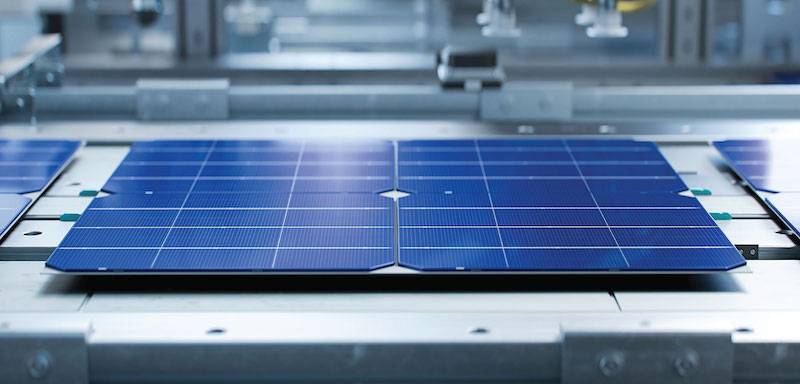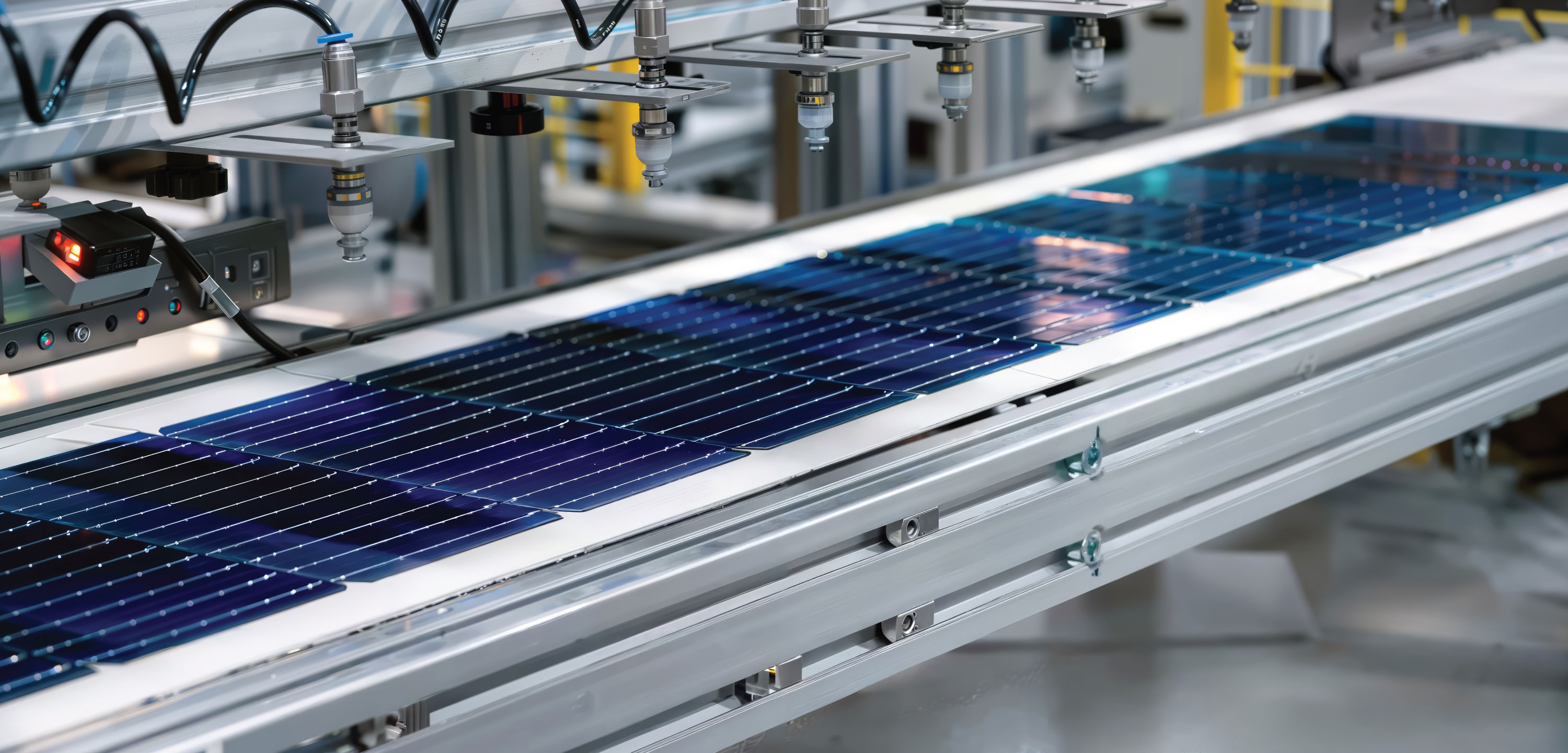Updated 1 year ago
Coronavirus threatens health of the global solar industry
Written by
Catherine Lane

Find out what solar panels cost in your area
The impact of the coronavirus on China, the world’s biggest solar equipment supplier, is already causing major problems for the solar industry.
Coronavirus is now a global health emergency, but the country most heavily affected is the one where the virus first emerged - China.
To prevent the virus from advancing, the country has placed many cities under quarantine. In addition to that, some Chinese provinces have mandated factories and companies to completely shut down, effectively causing manufacturing (including solar manufacturing) in China to come to a screeching halt.
Because China is the largest solar panel manufacturer on the planet (they alone account for 70% of the global market), the widespread shutdown has the potential to harm the solar industry worldwide.
What is coronavirus?
Coronaviruses are common viruses that usually cause sicknesses like the common cold or mild upper respiratory illnesses. A new strain of coronavirus, COVID-19, first appeared in the city of Wuhan, China in the Hubei Province at the end of 2019.
There is currently a total of 78,514 cases of coronavirus reported in China and a death toll of 2,747 people. The World Health Organization has declared the coronavirus outbreak to be a public health emergency of international concern.
This new contagious strain spreads through human-to-human contact. This means that it can be spread between people who are within about six feet of one another. It is still unclear just how contagious COVID-19 is, but it seems to be spreading easily throughout communities all over the world.
The Centers of Disease Control and Prevention has more information on the symptoms and spread of coronavirus.
Because the virus has spread so easily throughout China, the country has taken measures to prevent the further transmission of the virus through implementing quarantines and work stoppages in an attempt to limit person-to-person contact.
Coronavirus quarantines & restrictions disrupt Chinese manufacturing
Initially, China extended the national holiday for the Chinese New Year in an effort to thwart the spread of the virus. Because coronavirus is spread from person to person, many cities were placed under quarantine and travel restrictions were put into place.
The travel restrictions affected 500 million people - that’s more than the entire US population!
Companies and manufacturers in some provinces were mandated to stop operating until at least February 9, and many closures are ongoing at the time of writing (early March 2020).
The provinces of Jiangsu, Zhejiang, Hubei, and Anhui all hold cities that were placed under quarantine. Around 50 million people, in total, were directly impacted by the quarantine requirements.
The combination of mandatory work stoppages, travel restrictions, and the extended holiday are hitting China hard, and are predicted to cause a big disruption in the solar industry supply chain.
Solar supply chain hit by coronavirus outbreak
The provinces placed under quarantine hold many key manufacturing plants in the solar industry, including Trina Solar, Hanwha Q Cells, and Enphase.
Chinese solar manufacturing hit hard
China is a hub for solar panel manufacturing. Trina Solar, JA Solar, Suntech Power, Yingli Solar, Jinko Solar, and Hanwha Q Cells are just some of the companies that have manufacturing plants in China.
The extended Chinese New Year holiday pushed back manufacturing by three days. Manufacturing was stalled even longer by the mandatory work stoppages that were put into place.

Travel bans also prevent workers from traveling to their jobs. So, even as working bans began to lift, many people could not leave their cities to get to work at manufacturing facilities.
Hubei Province alone, where coronavirus originated, is estimated to be home to 11 million migrant workers. That’s 11 million people who could not go to work, even if their factories opened. So, plants that are open have been operating at substantially lower production rates due to a lack of labor.
Overseas solar manufacturing affected by raw material shortages
The effects of this are felt the hardest within China, however, overseas manufacturing is expected to take a hit, as well. Many solar manufacturing plants outside of China rely on Chinese imports for raw materials like aluminum framing and PV glass.
The plants that manufacture these raw materials are experiencing the same delays that module manufacturers in China are.
With low production rates, the companies manufacturing raw materials don't have enough product to ship out to meet the needs of overseas manufacturers.
Hanwha Q Cells already suspended operations at their module assembly plants in South Korea due to a shortage of raw materials.
Panel manufacturers in southeast Asia and the US are most likely to be affected by raw material delays.
Most solar module production manufacturers in the US and southeast Asia will hold one to two months of materials in stock. This means these manufacturers would still have enough materials to make modules for about a month.
If the production of raw materials for panels in China is delayed for more than one month, overseas manufacturers will run out of their stock. At that point they won’t be able to produce any more solar panels.
Shortages of raw materials could drive up the prices of solar panels, as well.
Solar installations around the world to be delayed by coronavirus
Over 70% of the world’s solar panels are made in China, meaning a disruption of the supply chain in China will impact the solar market globally. While some countries won’t be impacted immediately, others are already starting to sweat - including India and Australia.
Utility solar projects delayed in India
India heavily relies on China for their solar panels. In fact, between 80% and 90% of solar modules in India come from China. India is already predicting shipment delays of several months, putting nearly $2.24 billion worth of solar projects behind schedule.
This is more than just a minor scheduling inconvenience for India. Many of the solar projects in the country that will be delayed are contracted through a Power Purchase Agreement program. This program requires projects to be operational by July 2020.
Developers are starting to get nervous about missing these deadlines, as these projects require equipment to be ordered at least six months in advance.
Thankfully, each of the Power Purchase Agreement contracts include a “force majeure” article. This article allows the operational date of a solar system to be pushed back if an event qualifies as force majeure.
India’s Ministry of New and Renewable Energy assured that the events caused by the coronavirus outbreak would be covered by the force majeure article. As such, developers must prove that their project delays are related to the coronavirus outbreak.
Supply concerns in Australia
Australia is another solar market that is dependent on Chinese solar panel manufacturing. “Yes, there is already a lot of panic in the industry, but nobody has seen any direct effects just yet,” says James Warburton of Solar Wholesalers, a top solar installer in South Australia.
With the delays in solar panel production in China, the Australian industry could start to feel the impacts in just a few weeks. Solar distributors, who provide solar panels to installers, will start to run low on stock. Distributors will likely reserve what is left of their stock for their larger clients, leaving smaller installers empty-handed.
It’s likely that the stock Australian distributors currently have will only last until mid-March.
As the amount of materials for solar installations dwindle, Australians could start seeing higher prices for solar equipment. Distributors will be able to increase how much they charge for the panels they have in stock because of the limited availability of panels.
This, in turn, could increase how much homeowners have to pay for a solar installation.
“Best case would be that Australia will start seeing some more stock in early April - however, I would expect more like late April. This would be assuming China is back to normal by early March,” Warburton says.
The first shipments of solar panels would likely be ones that had been produced in January but did not get shipped out because of the coronavirus outbreak. Australia would then have to wait even longer for more shipments as China catches up on the manufacturing losses from February.
Section 201 tariffs protect The United States
The US solar industry won’t be hit as hard as other countries by the coronavirus outbreak. The US does not rely as heavily on China for panels, especially after the Section 201 tariffs were put into place.
The Section 201 Tariffs tack on an extra tariff on panels imported from China, making them more expensive. This has led to many installers and distributors choosing to use panels manufactured in the U.S.
However, problems could arise for US manufacturers that rely on China to import the raw materials needed to make solar panels. If raw material shipments are delayed, solar panels cannot be manufactured.
This could then delay solar installations throughout the US.
Coronavirus could have a similar impact on solar battery storage
Most of the world’s lithium ion battery manufacturers also call China home. This means that coronavirus is predicted to have a similar impact on the lithium ion battery storage industry.
For example, one of the world’s largest Chinese battery manufacturers, Contemporary Amperex Technology, is located within the Jiangsu Province, which has been heavily impacted by mandatory work stoppages.
These manufacturing delays are coinciding with a time of significant growth for both battery storage and electric vehicles. Slowed battery production in China could hold up storage projects and electric vehicle production substantially.
Analysts at Wood Mackenzie estimate that battery storage production capacity could be 10% lower than what forecasts for 2020 have previously predicted.
These production delays could increase the prices of batteries for solar storage. Despite this, battery costs are still expected to drop five times below 2019 prices by 2040.
The disruption caused by coronavirus will only be a short interruption in the projected price drops.
How long before the solar industry recovers from the coronavirus outbreak?
The Chinese Photovoltaic Industry Association expects that the solar industry in China will not return to normal until the middle of 2020. The delays could prevent some home and business owners from qualifying for incentives.
Plus, the possibility of increased module prices could make solar no longer economically viable for some people. For small installers, delays like this could put them out of business.
As coronavirus continues to spread throughout other countries, the solar supply chain could continue to suffer. It’s difficult to predict exactly what will happen, as how coronavirus spreads is still very much a mystery.
Catherine is a solar industry analyst and content manager with five years of experience researching and reporting on residential solar. As the former Written Content Manager at SolarReviews, she led a team producing informative content to help homeowners make informed decisions about solar investments. Her expertise has been featured in Solar Today Magazine and Solar Industry Magazine, with insights cited by major outlets including Forbes and Bl...
Learn more about Catherine Lane